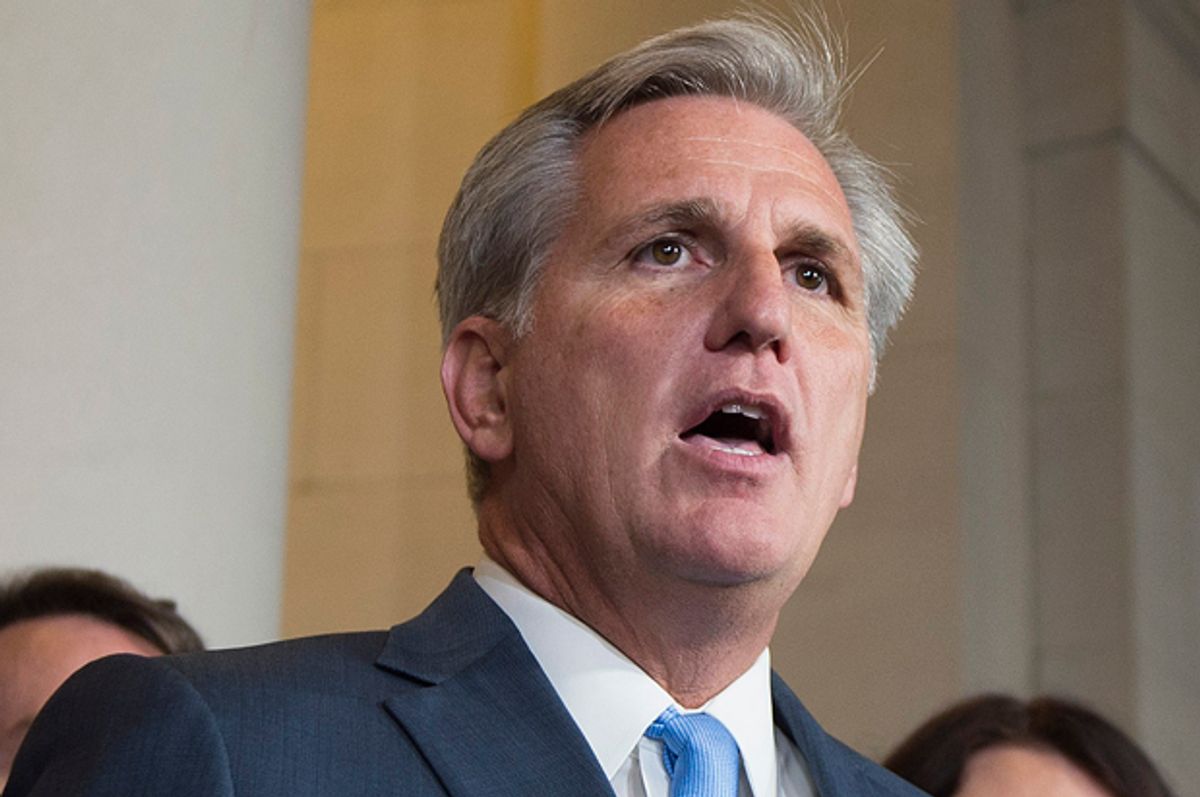Rep. Kevin McCarthy, R-Calif., staved off a right-wing challenger on Wednesday to become the next House minority leader. The Californian will steer House Republicans as the party loses control of the lower chamber for the first time since 2011.
McCarthy will replace outgoing Rep. Paul Ryan of Wisconsin as the leader of the House Republicans. Because Ryan led the party while they were in control of that chamber, he held the title of speaker of the House. While McCarthy had been angling to replace Ryan as his party's leader since the days when he was in the GOP's No. 2 role as House majority leader, he could have conceivably been speaker of the House himself had Republicans retained their majority following the 2018 midterm elections.
"We will work with anybody across that aisle if they are there to work to move America forward," McCarthy told reporters at a news conference after he became House minority leader. "But let me be very clear: If their agenda is simply investigations, impeachment – and not focused on the hardworking American public – we will be there to defend the American public."
The new House minority whip will be Rep. Steve Scalise of Louisiana, and the new Republican conference chair will be Rep. Liz Cheney of Wyoming. Scalise is best known as the survivor of an assassination attempt last year by left-wing activist James Hodgkinson, while Cheney is the daughter of former Vice President Dick Cheney.
The California congressman's path to being voted into the GOP's top leadership post was not without its obstacles. McCarthy faced opposition from Rep. Jim Jordan of Ohio, the co-founder of the ultra-conservative Freedom Caucus, which has long criticized Republican congressional leadership for being too moderate and conciliatory. Jordan's campaign to stave off McCarthy's bid to take over the House GOP was always considered a long shot, and in the end, the results bore out that assumption, with McCarthy getting 159 votes to Jordan's 43 votes in the closed-door meeting of House Republicans.
Ideology aside, Jordan would have likely been a controversial pick in the post-#MeToo era. Earlier this year, he was accused of being informed that Dr. Richard Strauss, an employee at Ohio State University when Jordan was an assistant wrestling coach there, had been involved in sexual misconduct with some of the student athletes and did not act to stop him.
In July, Jordan defended himself by saying, "It’s not true. I never knew about any type of abuse. If I did, I would have done something about it. And, look, if there are people who are abused, then that’s terrible – and we want justice to happen."
President Donald Trump also defended Jordan, telling an audience at a rally that "I don’t believe them at all. I believe him. Jim Jordan is one of the most outstanding people I’ve met since I’ve been in Washington. I believe him 100 percent – no question in my mind. I believe Jim Jordan 100 percent. He’s an outstanding man."

Shares